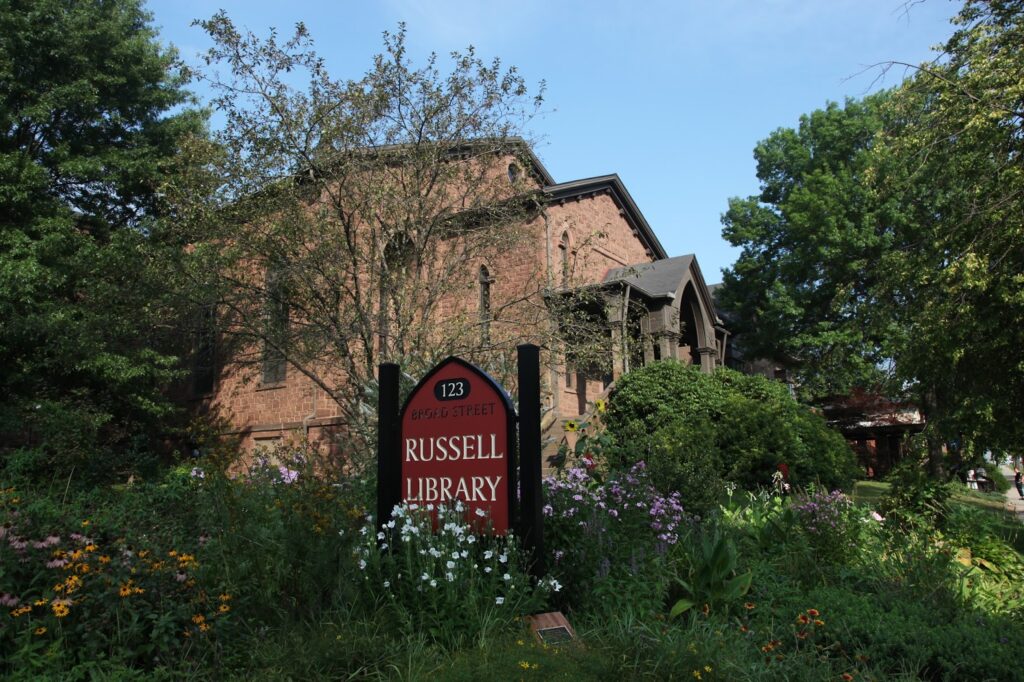by Oleksandra Volakova

Traveling to ten different countries in four continents in less than two hours sounds impossible, but not for those who visited Russell Library on Saturday, April 27. At the “Adventures Around the World” event, children got a chance to get acquainted with different cultures, listen to other languages, and taste various international snacks. Volunteers from the Wesleyan International Speakers Program (WISP), Foreign Language Teaching Assistants (FLTAs), Language Ambassadors, and Center for East Asian Studies Outreach Coordinators brought stories and activities to entertain and teach visitors about their respective countries and languages.
Entering the Hubbard Room, where the event occurred, brought a person directly to the Korean and Taiwanese table. There, children tried out traditional Korean and Chinese calligraphy taught by WISP participants- writing the characters using traditional ink and brushes. Next, the CEAS Outreach coordinators led the Japanese table, where young artists used pink and brown paints to draw a cherry blossom on a piece of paper and then used colored tissues and papers to add more volume to the Sakura flowers. After that, children traveled to Eastern Europe, where they listened to folk Bulgarian stories, made friendship bracelets, and created Ukrainian fabric dolls called Motanka – a talisman for prosperity and protection of the house.
At the India table, led by Wesleyan’s Hindi-Urdu FLTA, children got henna tattoos and were able to try out rangoli – a traditional art form in India. It literally translates as “an array of colors” and is believed to bring wealth and happiness to the house. After, they played a popular card game from Italy – scopa. This name means “to sweep” all the cards from the table. Here, the player’s goal was to be the first to get 11 points, which meant winning against the opponent. Libya was presenting a board game – children chose a place in Libya they would like to visit, watched a short video from here, and then tried to find a famous place on a map. If they guessed correctly, the reward was a mythology-related pin, their name tag in Arabic, and native sweet cookies.
Peru presented an adaptation of Lotería – a board game with rules similar to bingo, but it is played with cards instead of numbered balls. This set of Lotería, created by one of the Language Ambassadors at the Fries Center for Global Studies, highlighted aspects of Peruvian culture from Inca Kola (a popular soda) to cumbia amazónica (a musical genre). By “visiting” France, children could play a moving game called Pétanque. It seems simple at first sight – all you have to do is throw a ball as close to the target as possible. However, making it stop the closest to the target is much harder than it sounds.
The participating children had a passport to keep track of all the countries they visited. After completing an activity, they got a stamp or handwriting from each country’s representative. With establishing this collaboration between Russell Library and Wesleyan’s language students, Middletown children learned culture, played games, and tried snacks from other countries around the world without actually leaving the library.
This event was sponsored by the Fries Center for Global Studies and the Office of International Student Affairs.


